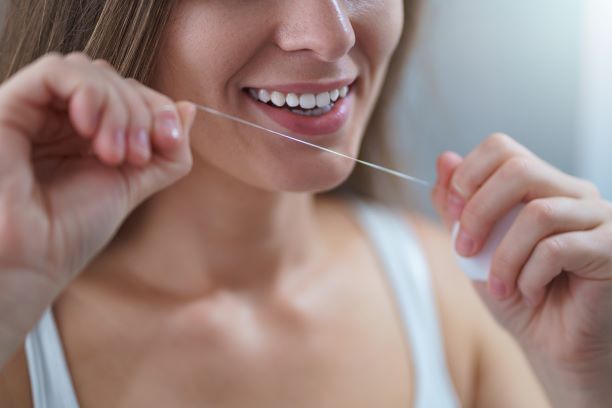Due to the COVID-19 pandemic, your orthodontist may have postponed all elective procedures and non-emergent appointments. It’s quite understandable to get nervous about something going wrong with your braces when most of the orthodontic offices are closed. If it gives you any peace of mind, then you must know that it’s rare for a genuine braces emergency to occur. Although unexpected orthodontic issues do crop up, they are usually minor, which can be fixed easily at home, preferably after a call with your orthodontist.
Most orthodontists can provide you the solution to your common orthodontic problems on the phone or on a video call. You can also contact them through their website or Facebook page, where they post important information about COVID-19 and their reopening dates.
In this article, we’ve put together a reference guide for handling orthodontic issues at home:
Have these tools and supplies on hand to manage the minor orthodontic issue:
- Toothpicks
- Dental floss
- Q-tips Orthodontic relief wax
- Disinfected tweezers
- Interproximal brush
- Topical anesthetic
- Salt
- Over the counter pain medication (ibuprofen or acetaminophen)
Handle these most common orthodontic issues at home:
- O-ring Issues
- If the rubber o-ring is lost
- If the rubber o-ring comes off
- If the wire ligature is not loose but sticks out into the lip
- If the wire ligature is loose
- Discomfort
- Irritation in Mouth
- Mouth Sores
- Loose Braces or Bands
- Protruding Wire
If you wear braces that use an “O” ring (tiny rubber band) to hold the orthodontic wire in the bracket/brace, you may face these common orthodontic issues:
How to fix: Use a sterilized tweezer to put a new one back in place.
How to fix: Put it back with the help of disinfected tweezers.
How to fix: Bent the wire back down with the help of a Q-tip or pencil eraser.
How to fix: Remove it with the tweezers.
Some level of discomfort during orthodontic treatment is normal as your teeth move; however, this discomfort should not last longer than a couple of days.
How to fix: Rinse your mouth with warm saltwater and take over-the-counter pain medications. If the discomfort stays for more than a couple of days, call your orthodontist to determine the next course of action.
Sometimes braces or wires can irritate the mouth, but it can be easily handled at home.
How to fix: Apply a small amount of orthodontics relief wax. This wax acts as an excellent buffer between the metal and your mouth.
Some people are susceptible to mouth sores. The areas affected can be the cheeks, tongue, or lips.
How to fix: Use a cotton swab to apply a small amount of topical anesthetic to the ulcerated area. Reapply as and when needed. If the discomfort lasts for more than a couple days, call your orthodontist for help.
If the braces or bands come loose, first figure out where the loose bracket/band is.
How to fix: If the loose wire is in the back of your mouth, slide the bracket off the wire and then take a sterilized nail clipper and carefully cut the excess wire so that it doesn’t poke the inside of your cheek. If the loose bracket is not in the back of the mouth, take a sterilized tweezer to move it back in position. To hold the bracket in place temporarily, use dental wax and call your orthodontist to determine the next step of action.
Sometimes the end of the wire gets out of place, which can irritate the mouth.
How to fix: Use a Q-tip or sterilized tweezer to push the wire flat against the tooth. If this cannot be done, cover it with orthodontic wax. Ensure that you notify your orthodontist of this issue.
What Qualifies for Orthodontic Emergencies and How to Handle Them
So far, the orthodontic issues we have covered are more of a nuisance than an actual concern. However, there are instances where you have to receive emergency orthodontic care. These are the two serious scenarios:
If you swallow a piece of your appliance
If a piece of your braces comes off and you swallow it, you may have coughing episodes or trouble breathing. Go to the nearest emergency room right away.
If you have a traumatic injury
When playing sports or any activity, if you get hit in the mouth, and you are bleeding, you may need stitches. So, head to the emergency room immediately.
If the tooth is chipped, fractured, loose or knocked out, call your orthodontist immediately. If you lose a tooth, pick up the tooth holding the chewing area and not the root, rinse it with water and try to put it back in the socket (bite down or use fingers to hold it in place); otherwise, keep the tooth moist by placing it next to the cheek in your mouth and visit the dentist immediately.
We at Thurman Orthodontics are here to help! So if you have questions or concerns about handling orthodontic issues at home amid COVID-19 lockdown, contact us right away!

Dr. Brian Thurman has spent his entire life enjoying all the beauty that California has to offer. A Fresno native, he still escapes to the ocean or the mountains whenever his busy schedule allows. Driven by his love for natural beauty, Dr. Thurman enjoys creating beautiful smiles and healthy bites that last a lifetime. He is proud to be the only Ivy League trained Orthodontist in the Fresno/Clovis area.

